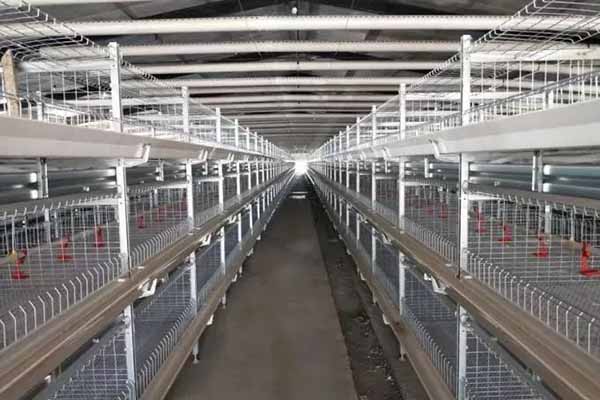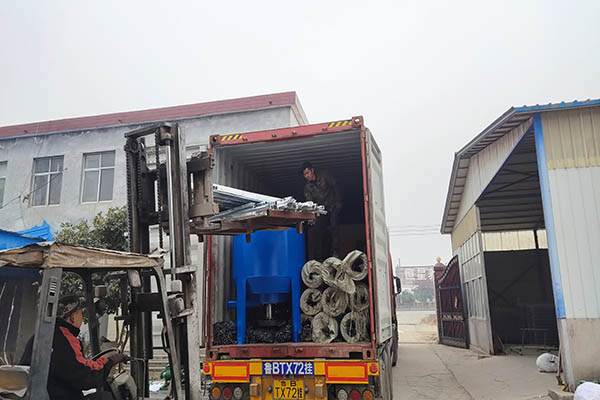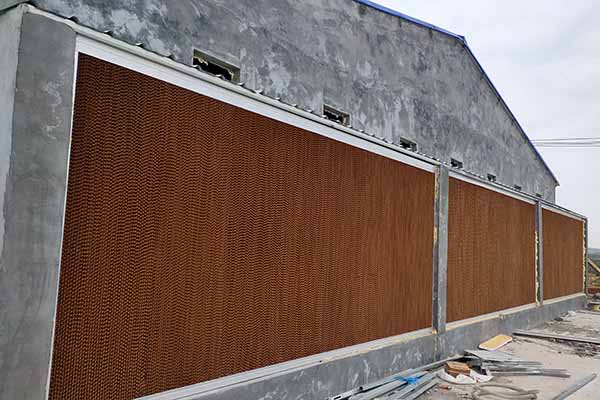How Much Money Can Tanzanian Chicken Farms Save by Using Automated Equipment?
Time : 2025-07-23
As a leading poultry equipment manufacturer from China, Livi Mechanical Equipment understands the challenges that Tanzanian chicken farms face in the industry. The demand for automated equipment is on the rise, and for good reasons. In this article, we’ll explore how much money Tanzanian chicken farms can save by incorporating automated equipment into their operations. Let’s dive in!
The Current Landscape of Tanzanian Chicken Farms
Tanzania has seen a significant growth in its poultry industry over the past few years. However, many farms still rely on traditional methods, which can be labor-intensive and inefficient. This reliance on manual labor often leads to high operational costs and reduced productivity.
Challenges Faced by Tanzanian Chicken Farms
- High labor costs
- Lack of efficiency in operations
- Poor biosecurity measures
- Limited capacity for scalability
These challenges can significantly impact the profitability of chicken farms in Tanzania. By adopting automated equipment, these farms can overcome these obstacles and achieve better financial results.
The Benefits of Automated Equipment
Automated equipment offers numerous benefits to chicken farms, including cost savings, increased efficiency, and improved biosecurity. Let’s take a closer look at how these benefits can translate into financial savings for Tanzanian chicken farms.
Cost Savings
One of the most significant advantages of automated equipment is the reduction in labor costs. Tanzanian chicken farms can save a substantial amount of money by reducing the number of employees required for various tasks. Here’s how:
- Feeding: Automated feeders can distribute feed at precise intervals, eliminating the need for constant manual feeding.
- Watering: Automated water systems can ensure consistent access to fresh water, reducing the risk of disease and improving growth rates.
- Monitoring: Automated monitoring systems can track key performance indicators, allowing for better management and timely interventions.
- Sanitation: Automated cleaning systems can help maintain a clean and hygienic environment, reducing the risk of disease outbreaks and the costs associated with them.
By reducing the need for manual labor, Tanzanian chicken farms can save a significant portion of their operational costs. According to industry experts, these savings can range from 15% to 30% of the total operational budget.
Increased Efficiency
Automated equipment not only saves money but also improves the overall efficiency of chicken farm operations. Here’s how:
- Consistency: Automated systems ensure consistent performance, leading to better growth rates and higher productivity.
- Speed: Automation can handle tasks much faster than manual labor, allowing farms to process more birds in less time.
- Accuracy: Automated systems reduce human error, leading to better management decisions and improved overall performance.
This increased efficiency can lead to higher profits and a more sustainable poultry industry in Tanzania.
Improved Biosecurity
Biosecurity is crucial for the success of any poultry farm. Automated equipment can help ensure better biosecurity measures by:
- Reducing human contact: Minimizing the risk of disease transmission through direct contact with birds.
- Automated monitoring: Detecting potential biosecurity breaches early and taking immediate action.
- Automated cleaning: Maintaining a clean environment that is less conducive to disease spread.
By improving biosecurity, Tanzanian chicken farms can reduce the financial burden of disease outbreaks and maintain the health and well-being of their birds.

Case Studies
Several Tanzanian chicken farms have already adopted automated equipment, and the results have been impressive. Here are a few case studies that highlight the financial benefits of automation:
Case Study 1: ABC Chicken Farm
ABC Chicken Farm, a medium-sized operation in Tanzania, invested in automated feeding and monitoring systems. Within the first year, the farm reported a 20% reduction in labor costs and a 15% increase in growth rates. The overall profit margin improved by 25%.

Case Study 2: DEF Chicken Farm
DEF Chicken Farm, another medium-sized operation, implemented an automated cleaning system. This resulted in a 30% reduction in the number of disease outbreaks and a 10% decrease in operational costs. The farm’s profit margin increased by 35% over the same period.
Conclusion
Incorporating automated equipment into Tanzanian chicken farms can lead to significant financial savings. By reducing labor costs, increasing efficiency, and improving biosecurity, these farms can enhance their p rofitability and contribute to the growth of the industry. As a leading poultry equipment manufacturer, Livi Mechanical Equipment is committed to helping Tanzanian chicken farms achieve their goals and thrive in the competitive poultry market.
rofitability and contribute to the growth of the industry. As a leading poultry equipment manufacturer, Livi Mechanical Equipment is committed to helping Tanzanian chicken farms achieve their goals and thrive in the competitive poultry market.
For more information on how our automated equipment can benefit your chicken farm, please contact us at https://www.livimechanical.com/contact.











